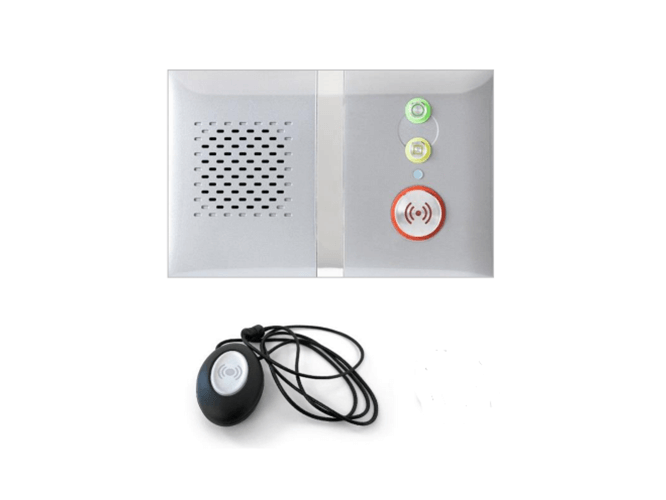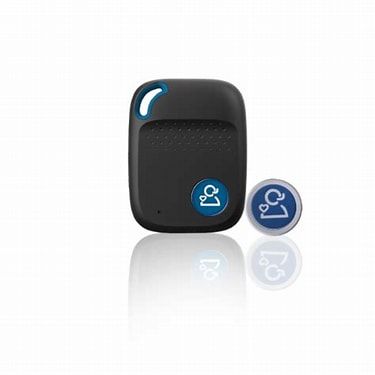As your parents age, their safety becomes a primary concern, especially if they live alone. Falls are among the most common dangers for elderly people, and wearing a personal alarm can provide much-needed security. However, convincing them to wear one is not always easy. At Mi-Guardian, we’ve got some practical tips to help guide the conversation.
Find the Right Time and Place for the Conversation
Timing is everything when discussing sensitive topics like fall alarms. Choose a moment when your parent is calm, relaxed, and more open to talking. Avoid stressful or busy times, such as during family gatherings or after a doctor's appointment. Opt for a familiar and comfortable environment, like their home, where they feel secure. Be sure to approach the conversation with patience and empathy.
Highlight Independence, Not Dependence
Many elderly parents might resist wearing a personal alarm because they see it as a sign of losing independence. You can reframe the discussion to focus on how the device enhances their freedom rather than limiting it. Emphasise that the alarm allows them to live independently longer, with less worry about falls. Point out that it’s a tool for them to stay active without fear rather than a symbol of frailty. Share stories of others who use fall alarms to maintain an independent lifestyle.
Address Any Questions They May Have
Your parent might have questions or concerns about how it works to use a personal alarm, and addressing this head-on can help alleviate their doubts. They may worry about how the alarm works, so explain that most models are simple and easy to use. Discuss any potential fears about accidentally setting off the alarm. Be prepared with details about the features of the device, such as 24/7 monitoring or automatic fall detection.
What If They Forget to Wear It?
One common issue is that elderly individuals may forget to wear their personal alarm, especially if it’s a new routine. Discuss ways to make wearing it a habit. Suggest placing the alarm in a visible spot, like by their bedside, so they remember to put it on each morning. Some alarms have reminders or alerts when they haven’t been worn for a while—consider a model with this feature. Reassure them that family members or caregivers can check in to ensure it’s being worn regularly. If your parent remains resistant, bringing in a healthcare professional or trusted family doctor might help. Hearing the benefits from a medical expert could provide the reassurance they need to feel more comfortable with the idea.
How Personal Alarms Can Be Worn
When encouraging your elderly parent to wear the alarm, choosing the right style can make all the difference. The comfort, ease of use, and overall design of the device can greatly influence their willingness to wear it daily. Select the wearing of the alarm that fits their personal preferences and lifestyle to help make the device feel less like a burden and a natural part of their routine. Here are three common styles of alarms, each with its benefits regarding how they can be worn.
Personal Alarm and Pendant
Digital Wrist Alarm
Wrist alarms are worn like watches, providing a convenient and discreet option for those who prefer not to have anything around their neck. They are lightweight, easy to wear, and often blend seamlessly with everyday accessories. For individuals who lead an active lifestyle, wrist alarms offer a comfortable, subtle solution that keeps them protected without feeling intrusive. This personal alarm is a compact, lightweight device designed to automatically detect when the wearer stumbles and send an alert for help. Worn comfortably around the wrist, it ensures assistance is called for even if the user is unable to press a button manually. Perfect for those at risk of falls, it offers peace of mind for individuals who may not have the ability to call for help themselves. While it may not detect every fall, it effectively identifies stumbles by factoring in the wearer's height and detecting a drop during the stumble. Please note, the fall detector may not be suitable for individuals under 4ft 11, as it works by sensing changes in acceleration.
Pendant Alarm
Pendant alarms are designed to be worn around the neck, ensuring they are always within easy reach in an emergency. They are popular because they allow users to access the alarm quickly by simply pressing the button. The pendant design is comfortable and visible, making it a reliable choice for individuals needing fast assistance, such as those prone to falls or mobility issues.


Button Alarm
Button-style alarms can be worn on clothing, such as clipped to a belt or pocket, making them highly versatile. This option is ideal for individuals who prefer not to wear anything on their wrist or neck but still want a safety device within easy reach. The button alarm allows users to maintain their style while knowing that help is always accessible when needed.
Oysta Rio
The Oysta Rio GPS Alarm is an advanced personal alarm designed for those who value safety, mobility, and independence. With its built-in GPS tracking, the Oysta Rio ensures users can be located quickly in the event of an emergency, no matter where they are. This sleek, easy-to-use device features a large SOS button that connects users to a 24/7 monitoring team, who can send help to their precise location.


Benefits of Wearing a Personal Alarm
Personal alarms offer a wide range of benefits for elderly individuals, enhancing their safety and providing reassurance for both them and their families. Here are some key advantages: Immediate Access to Help: In case of a fall or emergency, the user can get instant help, potentially preventing more serious health issues due to delayed assistance. Increased Independence: A personal alarm can give your parent the confidence to continue living independently without constant supervision. Peace of Mind for Family Members: Knowing your loved one has a safety net reduces anxiety for family members, especially those who live far away. Discreet and Comfortable Designs: Modern devices are lightweight and subtle, ensuring the user feels comfortable wearing them without self-consciousness. Additional Safety Features: Many alarms have added functionalities such as GPS tracking, medication reminders, and low battery alerts for a more comprehensive safety solution. 24/7 Monitoring: Personal alarms are usually connected to monitoring services that provide round-the-clock support, ensuring someone is always available to respond to an emergency. Reduced Hospitalisation Time: Quick response to falls can shorten recovery time and prevent complications that might lead to longer hospital stays.
Ready to Talk About Personal Alarms with Your Parent?
Convincing your elderly parent to wear a personal alarm may be challenging, but it’s a conversation worth having. By choosing the right time and place and focusing on independence, comfort, and safety, you can approach this sensitive topic with care. Ultimately, a personal alarm offers reassurance for both you and your parent, helping them maintain their independence while ensuring they’re protected in an emergency. If you're thinking of getting a personal alarm or have any questions, please contact us on 0800 130 0011 or email [email protected]. We're here to help you stay safe and secure!



